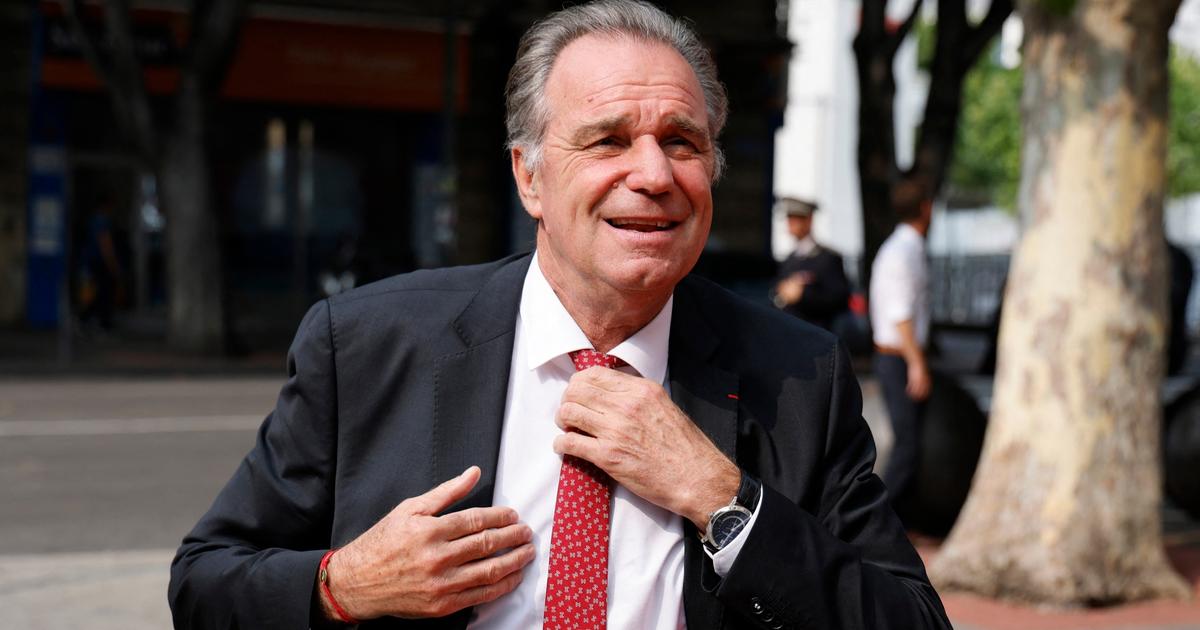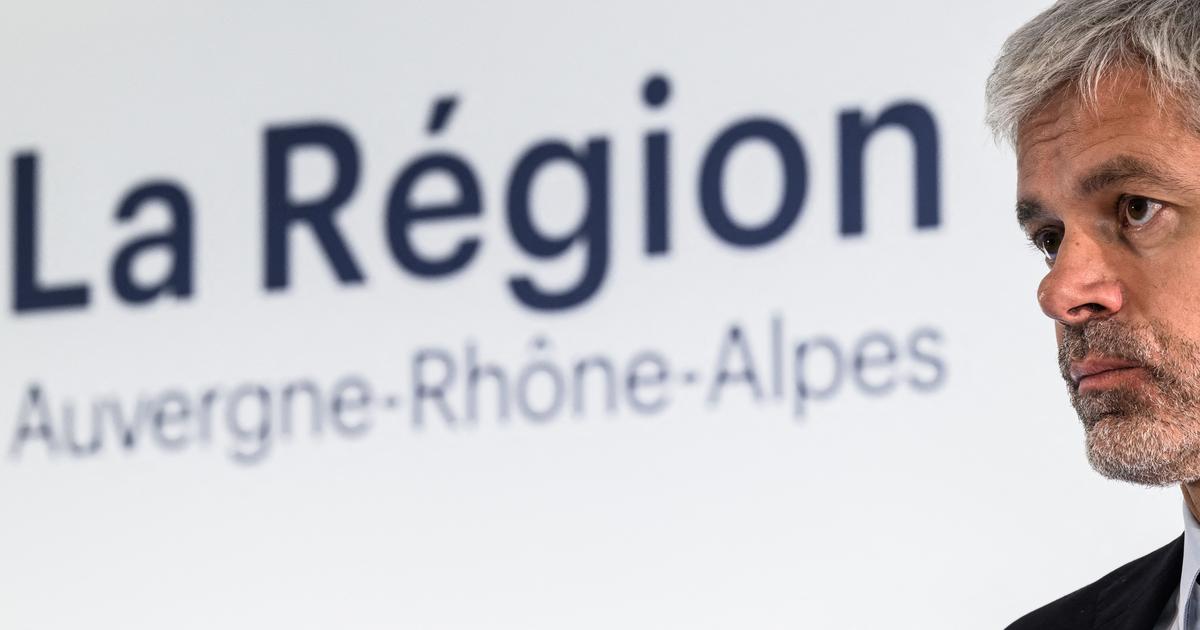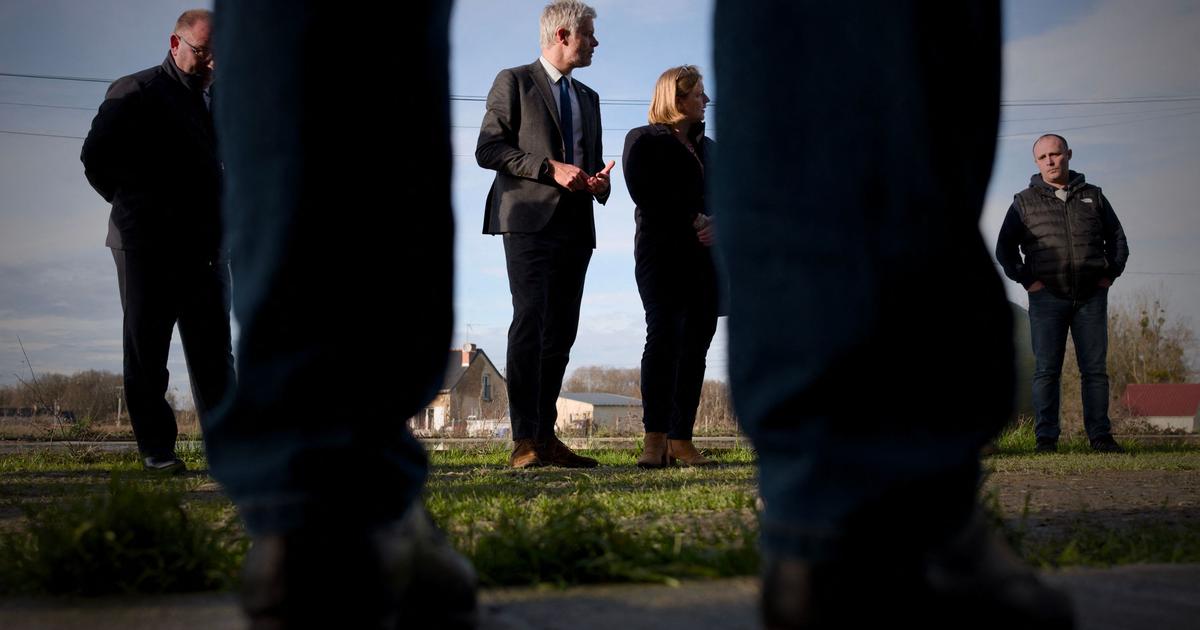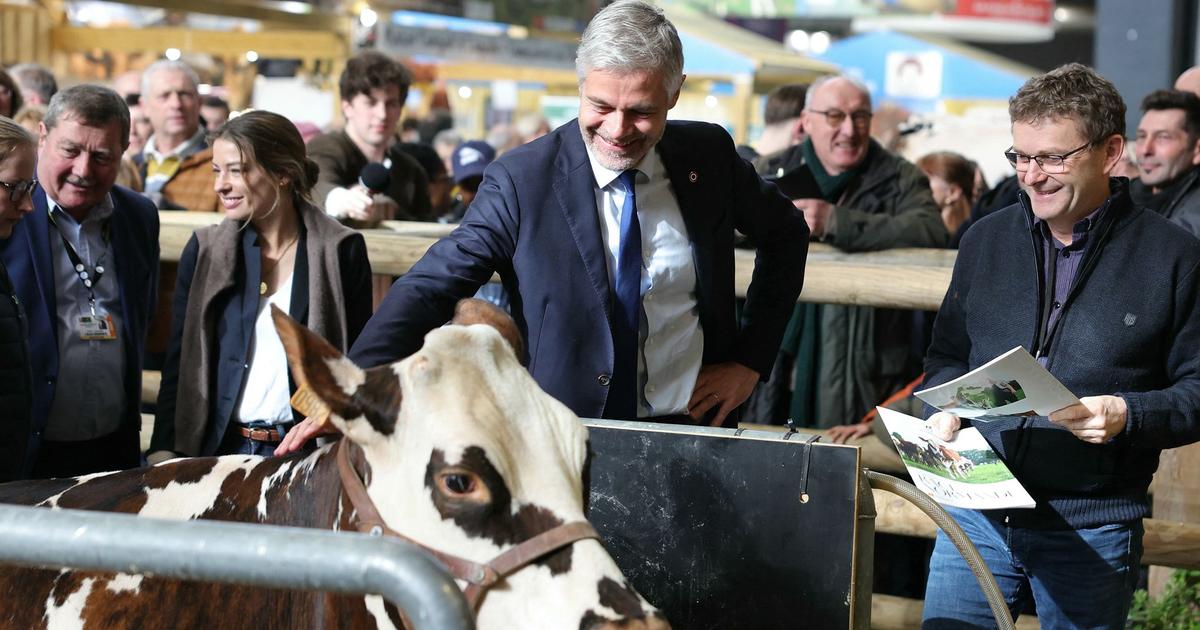Last vote before the presidential election, in April 2022. The second round of regional elections, again marked by a very strong abstention (around 66%), was held this Sunday throughout France.
Many contenders - already declared or anticipated - for 2022, such as Xavier Bertrand and Valérie Pécresse, were playing a good part of their political careers.
The ballot left little doubt as to the final result in some areas, but it was shaping up to be tight in others.
Here are the first estimates of the results, region by region, according to Ipsos / Sopra Steria for France Télévisions, Radio France and The Parliamentary Channel.
Hauts-de-France: Bertrand triumphs
There was little doubt about his success.
Arriving largely in the lead in the first round (41.42% of the vote), the right-wing candidate Xavier Bertrand (ex-Les Républicains) would win in the second with 53% of the vote.
His opponent from RN Sébastien Chenu finished second, with 25.6% of the vote according to this first estimate.
Karima Delli follows (21.4%), at the head of a list of union of the left.
Xavier Bertrand, who had announced that he would give up politics if he was beaten, was able to count on the support of the presidential majority.
Laurent Pietraszewski's list had not been able to maintain since it had obtained only 9.13% of the vote last Sunday, less than the required threshold of 10%.
Provence-Alpes-Côte d'Azur: Muselier snatches his victory
It is undoubtedly the region that has received the most comments at the national level, and one of those where the National Gathering could most hope to win.
Renaud Muselier (Les Républicains) should finally comfortably keep his chair as president, snatching victory with 57% of the vote.
Thierry Mariani, former UMP deputy passed to the RN, seems left behind with 43% of the vote.
Muselier certainly benefited from the withdrawal of left-wing candidate Jean-Laurent Felizia, under pressure in the name of the “republican front”.
The ecologist initially intended to stay, which had earned him a threat of exclusion by the leaders of EELV.
Great East: Rottner back up
An emergency doctor by training, Jean Rottner should comfortably retain his mandate as president of the Grand Est region.
He would come out on top with 39% of the vote, ahead of the National Rally candidate Laurent Jacobelli (27%).
Two other lists were maintained, that of Brigitte Klinkert (LREM, 13% in the second round) and that of Eliane Romani (EELV, PS, PCF, 21%).
During the last days of the campaign, Jean Rottner was also publicly annoyed at having to participate in a quadrangular, referring these two lists to "their responsibilities".
Bourgogne Franche-Comté: the Socialists stay ahead
Socialist Marie-Guite Dufay is in the process of being re-elected regional president, with 42.5% of the vote.
His opponent of RN Julien Odoul, who had a delicate end of the campaign between his ironic sentence on the suicide of a farmer and the accusations of fictitious employment which targeted him (which he denies), would obtain only 24, 4% of the vote.
Gilles Platret (The Republicans) would be at 23.7%.
The candidate invested by the majority Denis Thuriot, criticized for having maintained his candidacy, finished 4th with less than 10% of the votes.
Occitanie: Quiet Delga
With nearly 40% of the votes cast in the first round, the socialist Carole Delga had a good chance of being re-elected.
This becomes more than likely this Sunday, since she would come first with 58.5% of the vote, far ahead of her RN opponent Jean-Paul Garraud (23.5%).
Read alsoRegional elections, second round: all the results
Nouvelle-Aquitaine: Rousset for a fifth term
President of the region (Aquitaine then Nouvelle-Aquitaine) without interruption since 1998, the socialist Alain Rousset should be re-elected for a fifth consecutive term.
The 70-year-old would get 39.3% of the vote, a week after coming out ahead with 28.83% of the votes cast in the first round.
His opponent from RN Edwige Diaz only finished with 19% of the vote.
In this pentagular, the three other running lists would each obtain 14% of the vote.
Auvergne - Rhône-Alpes: Wauquiez in an armchair
With 43.85% of the vote in the first round, he could rest easy.
Unsurprisingly, the former deputy Laurent Wauquiez should be comfortably re-elected president of the Auvergne - Rhône-Alpes region, since he obtains 55.9% of the votes in the second round.
He is well ahead of the ecologist Fabienne Grebert, who represented several left forces united and obtains 32.7%.
Andrea Kotarac (RN) should finish 3rd, with only 11.4% of the vote.
Brittany: Chesnais-Girard ahead but no clear majority
Outgoing PS president Loïg Chesnais-Girard leads the way, with 30.5% of the vote.
But no clear majority emerges this Sunday evening, paving the way for a "third round" during the vote to elect the president of the region on July 2.
Isabelle Le Gallennec (LR) would get 21.5% of the vote, ahead of the EELV candidate Claire Desmaires-Poirrier (19.5%).
Center Val-de-Loire: Bonneau retains its advantage
Arrived at the head last Sunday, the socialist François Bonneau would win by far in the second round with 38.5% of the vote.
He notably benefited from the agreement made during the in-between rounds with environmentalists, who had obtained just over 10% of the vote last Sunday.
The RN candidate Aleksandar Nikolic would finish 2nd with 22.7% of the vote, tied with Nicolas Forissier (LR / UDI).
Marc Fesneau, Modem Minister in charge of relations with the Parliament, obtains only 16% of the votes.
Yet presented as the main hope of the majority, he had already arrived only fourth in the first round (less than 16.1% of the vote).
Pays de la Loire: Morancais ahead
Outgoing Christelle Mor Francais (LR-UDI), leading in the first round, should be re-elected for a second term with 46.5% of the vote.
The deputy Matthieu Orphelin, supported by environmentalists and La France insoumise, would finish quite far behind, with 34.5% of the vote.
He strongly believed in it since the socialist Guillaume Garot had decided to line up behind him.
The former Minister of the Ecological Transition and candidate of the majority François de Rugy, fifth of the first round with 11.97% of the vote, obtains only 8% this Sunday.
Normandy: Morin without surprise
Former Minister of Defense Hervé Morin, widely in the lead with 36.86% of the vote and 17 points ahead of his opponent RN Nicolas Bay in the first round, retains a solid advantage by obtaining 44.2% of the vote in the second tower.
He will in all likelihood be re-elected for another term.
No list had withdrawn during the in-between rounds.
Mélanie Boulanger, at the head of the united left, would finish second with 25.9% of the vote, ahead of the RN candidate Nicolas Bay (20.1%).
Corsica: Simeoni wins
Outgoing president Gilles Simeoni, who went it alone in the second round after coming first with 29.19% of the vote, would win in the second round with 39.7%.
He faced two other nationalist lists, including that of Jean-Christophe Angelini (15.2%) and a right-wing list, carried by Laurent Marcengeli (32.1%).
Île-de-France: Pécresse on the wire?
Will the alliance of the three left-wing candidates face it be enough?
The president of the Île-de-France region, Valérie Pécresse (Libres !, ex-Les Républicains) faces the ecologist Julien Bayou, who obtained the support of Clémentine Autain (rebellious France) and Audrey Pulvar ( Socialist Party) between the two towers.
No estimate is available at the moment.















